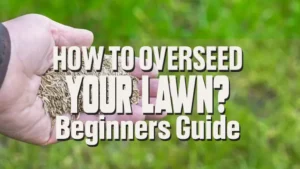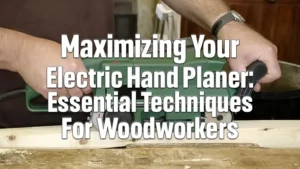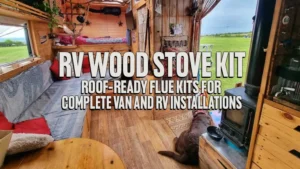Buy or Rent a Shed?
- July 6, 2023
- 0 comment
A shed can be a valuable addition to your property, whether it’s a separate structure in your garden or attached to your home. It can serve as extra storage space, a dedicated workspace, or even a personalized retreat. However, deciding whether to buy a shed or opt for a shed rental requires careful consideration of your financial situation, long-term goals, and specific needs.
In this guide, we’ll explore the pros and cons of buying and renting sheds, helping you make an informed decision. Whether you’re considering shed purchase options or exploring rent-to-own sheds, understanding these factors can simplify the process and ensure the choice aligns with your lifestyle.

Renting a Shed: A Temporary Solution with Flexibility
For those who need temporary storage or workspace without the long-term commitment of ownership, renting a shed offers a practical and low-risk solution. This option is ideal for individuals who value flexibility and want to avoid the upfront investment of buying.
Pros of Renting a Shed
- Affordable Monthly Payments: Renting eliminates the need for large upfront costs. Instead, you pay a manageable monthly fee, making shed rental a budget-friendly choice for immediate storage or workspace needs.
- Flexibility to Evolve with Your Needs: Whether you’re transitioning homes, taking up a new hobby, or undergoing renovations, renting allows you to adjust the size or rental term of the shed as needed. This adaptability is a key advantage of shed rental options.
- Minimal Maintenance Responsibility: Rental agreements often place the burden of maintenance and repairs on the rental company, saving you time and money. If issues arise, you can rely on the company to handle them efficiently.
Cons of Renting a Shed
- Cumulative Long-Term Costs: While monthly fees may be affordable, the total cost of renting a shed over an extended period can exceed the price of buying a shed outright. If you anticipate long-term use, a purchase may be more cost-effective.
- Lack of Ownership: Renters don’t have the freedom to make significant changes, such as painting or adding shelves, without approval. This restriction can limit customization.
- Potential Rental Commitments: Many shed rental agreements include minimum rental terms, and early termination fees may apply if you end the contract prematurely. Always review the terms before committing.
Buying a Shed: A Long-Term Investment
Purchasing a shed is often seen as a long-term investment that provides ownership, versatility, and cost savings over time. While the upfront cost may be significant, a bought shed serves as a durable asset that can enhance your property and cater to your storage or workspace needs for years.
Pros of Buying a Shed
- Complete Ownership: Buying a shed grants you full control. You can paint, upgrade, or customize it to perfectly suit your needs. Unlike shed rentals, ownership allows you to create a truly personalized space.
- Long-Term Cost Savings: While buying a shed requires a larger upfront investment, it often becomes more affordable in the long run compared to ongoing shed rental options. For long-term usage, the savings can be significant.
- Boosts Property Value: A well-maintained and attractive shed can increase your property’s value, making it a desirable feature for potential buyers. This is particularly true if the shed is integrated into your landscaping and provides practical functionality.
Cons of Buying a Shed
- High Initial Costs: Purchasing a shed can be expensive, especially if you’re opting for high-quality materials or custom features. For those on a budget, the price tag may feel overwhelming.
- Maintenance and Repairs: Owning a shed means taking on the responsibility of its upkeep. Tasks like painting, treating wooden sheds, or fixing leaks fall squarely on the owner.
- Depreciation Over Time: Sheds, like most physical assets, depreciate. If you plan to resell the shed later, the value is likely to be much lower than the original purchase price.
Additional Considerations
It’s important to take into account additional factors that could influence your decision:
- Location: For buying a shed, ensure the placement complements your property’s layout. If you’re renting, consider ease of installation and removal.
- Purpose: Determine how the shed will be used. For workspaces, you might need a larger, well-insulated model, whereas simple storage may require something more basic.
- Local Regulations: Check zoning laws, building codes, or HOA guidelines. Even for rent-to-own sheds, some areas require permits for larger structures.
- Quality Assurance: Whether you’re renting or buying, prioritize durability. Inspect materials and read reviews to ensure the shed will meet your needs.
Conclusion
Choosing whether to rent or buy a shed depends on your needs, budget, and long-term plans. Renting a shed offers flexibility and lower upfront costs, making it ideal for short-term use, but the long-term expenses can add up. Buying a shed, while requiring a larger initial investment, provides long-term value, customization options, and potential property value enhancement, though it comes with maintenance responsibilities. Evaluate your unique circumstances, research shed rental options and purchase plans, and choose the solution that best fits your budget and future needs.
Frequently Asked Questions
- What is the advantage of resin storage sheds over wooden or steel ones?
Resin storage sheds offer a blend of durability and convenience. They are resistant to weather, decay, and pests, and require virtually no maintenance. In contrast, wooden sheds may require periodic treatment to prevent rot and insect damage, and steel sheds may rust over time if not properly cared for. - Can I customize the interior of my shed?
Yes, most sheds offer the flexibility for interior customization. You can add shelves, hooks, and other organizational tools. However, remember that heavy modifications might affect the warranty. - Do these sheds come with a floor included?
Most of the sheds mentioned come with a floor included, providing an additional layer of protection against ground moisture and pests. Always check the product specifications for each shed to confirm. - What kind of base do I need for these sheds?
A solid, level base is essential for any shed to ensure stability. This could be a concrete slab, paving stones, or treated wood deck. Check the manufacturer’s instructions for specific base requirements. - Can I install these sheds myself?
Yes, many of these sheds are designed for easy assembly, with some people able to complete the installation in a few hours. However, larger sheds or those made of heavy materials might require additional help or professional installation. - Are these sheds weatherproof?
The resin and galvanized steel sheds are designed to withstand a variety of weather conditions. However, while they can resist weather to a degree, extreme conditions might lead to wear and tear over time. Regular maintenance can help enhance the lifespan of your shed. - Can these sheds accommodate large equipment like lawnmowers or bicycles?
The larger sheds, like the 10-ft x 14-ft Lexington Galvanized Steel Storage Shed or the 12-ft x 8-ft Heartland Coronado Wood Storage Shed, should have ample space for storing large equipment. Always measure your items and check the shed’s internal dimensions to ensure a good fit.













Leave your comment